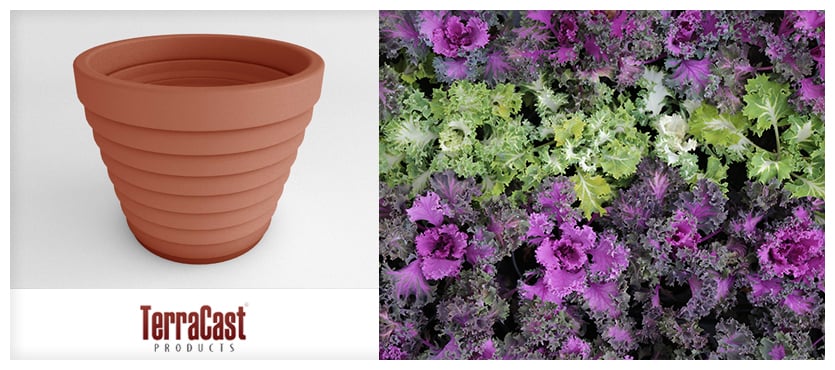Are you thinking about starting your own edible garden? It is a popular way to add some purpose to your garden besides being purely ornamental, and they can also be just as pretty to look at. If you are considering starting one, you might be wondering where to begin and what materials you might need before you commence planting anything.
For those who are new to edible landscaping or gardening in general, you may prefer to use planters as they offer a convenient means for planting crops and flowers if you do not already have a dedicated spot in your yard for planting. Here are some items for you to consider as you begin your foray into edible landscaping.
Planter Sizes
Using the correct planter will ensure your plants grow without needing to transfer them later, which may happen if the planter is too small. What size planter you need will depend on which plants you decide to grow and how many of them you would like to plant together.
You can commonly find planter sizes anywhere from 0.125 gallons for smaller plants to 30 gallons for apple trees and other larger plants. Whether you plan to have a small garden of tiny herbs or a larger one with shrubs and trees, making sure you pick the correct sizes will ensure your plants grow better.
- How big will the plant roots grow? – This will depend on the plant. For common household garden crops, strawberries tend to reach a depth of 6 inches, kale can grow to 12 inches deep, and cilantro can reach up to 18 inches. Before planting any crop or plant, you should always research how far down their roots extend to avoid complications later.
- How often will the plants need watering? – Again, this will depend on the plant and where you live. On average, you can expect to water plants about three times a week; however, you must factor in how often it rains, how quickly the soil drains, and how wet the soil is naturally.
Material
Once you have determined what size planters you will need for your garden, the next issue you must consider is the type of materials you wish to use. Since you will be planting crop-yielding plants for you and your family to enjoy later, you must use materials that are food safe to avoid contamination by harmful chemicals.
Commonly used materials for building raised garden beds and planters are wood, wood composites, metal, stone, brick, and resin.
- LLDPE resin is generally food safe and used for food packaging – Linear Low Density Polyethylene Resin can be found in planters, food wrapping, and even playgrounds, and it allows for thinner films or frames without compromising any durability and strength and is approved for usage by the FDA. It does not corrode, rot, or rust, making it a reliable long-term solution for many different applications.
- TerraCast recommends that customers request virgin material for edible gardening use – Virgin plastic is a new resin that is directly produced using natural gas or crude oil, without any recycled plastic materials. Recycled plastic gets downcycled, which means the quality and durability decrease every time the materials get recycled. To ensure maximum durability for your planter, we recommend asking for virgin materials.
Consider TerraCast To Help Build Your Edible Garden
Founded in 1969, TerraCast provides environmentally friendly and safe materials and products for customers across the United States. We specialize in offering resin-based products for their durability, cost-effectiveness, low maintenance, and damage/weather resistance. If you are looking to begin your edible landscaping journey and need reliable planters, contact us today for a quote!

